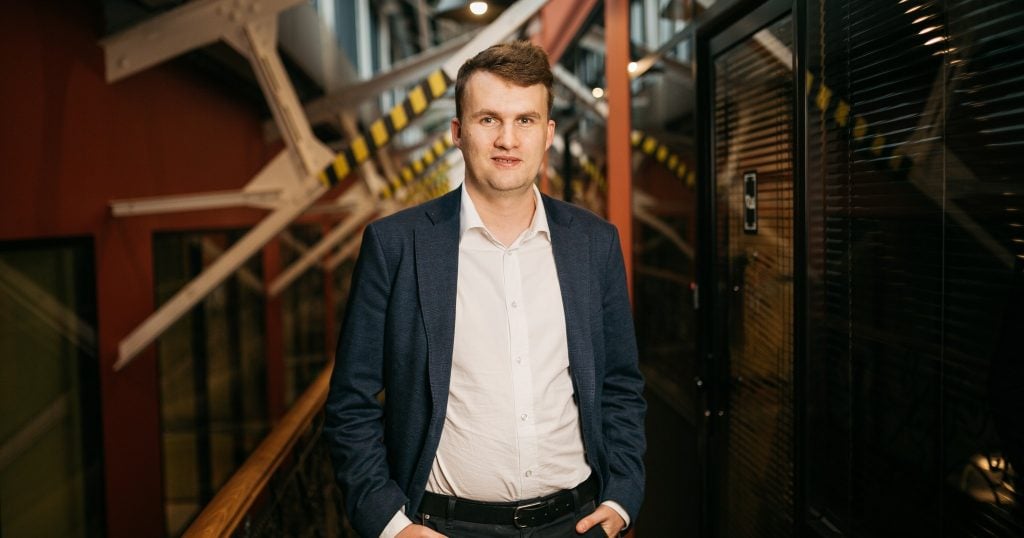86% of employers believe that AI and technology could transform their businesses by 2030. And more than half of them have already planned to make it happen.
These interesting figures come from The Future of Jobs Report 2025. Of course, these numbers reflect the views and opinions of a specific sample of respondents — 1,000 employers representing over 14 million workers across 22 industry clusters and 55 economies. Still, it’s enough to understand the overall trend in business development.
The era of artificial intelligence and innovation is forcing entrepreneurs and startup founders to choose: either embrace it or watch their successful competitors move ahead. The current AI challenge is no longer a theoretical assumption — it is already being put into practice. And here’s why.
AI, robotics, and energy management – the key technological trends through 2030
Nearly three years have passed since the launch of ChatGPT in November 2022. During this time, investments in AI have increased eightfold — particularly in servers and power plants needed to support these emerging technologies. The growing demand is evidenced not only by investments in physical infrastructure but also in AI-related skills.
According to Coursera, global interest in AI education has surged — both among individual learners (especially in the U.S.) and corporations (with the highest demand in India). The primary goal is to increase productivity.
A vivid example of this trend is Google. The company is investing billions of dollars into research and development aimed at accelerating innovation. On its open platform, Google AI, one can find countless academic papers on artificial intelligence co-authored with institutions like MIT, Stanford, DeepMind, and others. These include research in machine learning, natural language processing (NLP), computer vision, ethical AI, and a range of blog posts that explain new technologies in simple language.
In addition, Google offers a suite of ready-to-use development tools for business and educational purposes — such as TensorFlow, JAX, TFLite, and MediaPipe. These tools include sample code, API documentation, and tutorial videos.
In addition to its technological foundation, Google actively supports education and helps businesses adapt to the AI era. The company has launched training initiatives aimed at small and medium-sized enterprises, offering free or affordable courses in digital skills. Among them: Grow with Google – free training in digital marketing, SEO, and the use of AI in business; Google Cloud Skills Boost – covering topics such as machine learning, cloud analytics, and automation; and for startups, the Google for Startups: AI Program provides tailored support.
In 2023, there were 162 industrial robots for every 10,000 manufacturing employees worldwide
This is the global robot density figure for 2023 — a number that has doubled over the past seven years. Since the COVID-19 pandemic, the number of intelligent machines integrated into work processes has been steadily increasing by 5–7% annually. The highest concentration of these mechanical assistants is found in China, Japan, the United States, South Korea, and Germany. Together, these five countries account for 80% of all robot installations worldwide.
A compelling example is FANUC Corporation, a Japanese company known as one of the world’s leading manufacturers of industrial robots, CNC systems, and factory automation solutions. According to the company’s latest data, FANUC shipped 1 million robots in 2023 alone. Its factories are “unmanned” — robots produce other robots, working 720 hours non-stop (30 days) without interruption.
In demand – Big Data specialists; losing ground – postal and banking employee
As technology continues to evolve, 92 million jobs are expected to disappear permanently (per WEF’s report). AI is gradually replacing office and administrative workers, cashiers and bank employees, insurance assessors, and even investigators.
At the same time, entirely new professions will emerge. There will be a growing demand for AI specialists, data analysts, cybersecurity experts, and automation engineers. Employers are expected to create 170 million new jobs to meet these needs.
At this stage, government bodies and ecosystem stakeholders in the whole world must step in to help steer technological progress in the right direction. In particular, they need to ensure that specialists from “traditional” professions — who currently make up 59% of the workforce — have opportunities to upskill and master current trends.
This transformation must take place at every level: from educational institutions to employer policies. Otherwise, there is a real risk that robots will displace human labor, leading to increased unemployment and inequality. Interestingly, only half of companies today are ready to invest in employee retraining.
Hard skills: understanding AI. Soft skills: emotional intelligence and communication
The successful worker of the future is not only someone who knows how to use AI, but someone who can think critically, adapt, learn continuously, and collaborate effectively. Developing these skills is key to staying professionally relevant in an era of rapid technological change.
In addition, understanding one’s own values, emotional intelligence, and intrinsic motivation will be valuable bonuses for any job candidate. If we analyze the demands of today’s employers, we’ll see growing interest in the very skills that AI still cannot replicate — namely, individual emotional and human qualities.
At the same time, companies must invest in their people by enhancing their skills and competencies and strategically shaping roles and collaboration between humans and machines.








